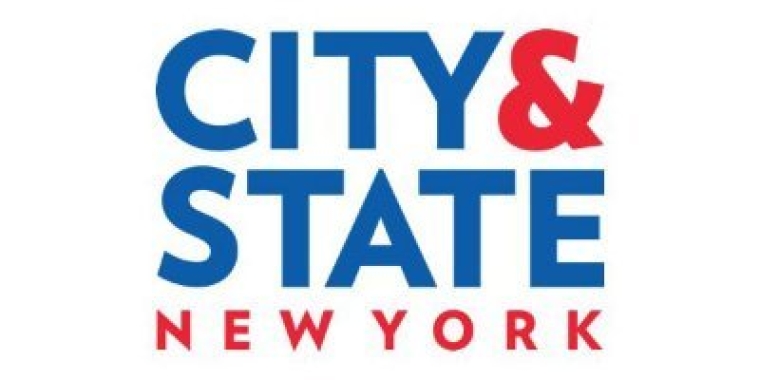
City & State: Can New York lead the nation on antitrust enforcement?

The old American tradition of trust busting is having something of a renaissance. In late July, Congress summoned the chief executives of Apple, Amazon, Google and Facebook for a historic hearing on the tech giants’ allegedly anti-competitive behavior. As soon as this month, state and federal prosecutors plan to bring an antitrust lawsuit against Google. And now, the New York state Legislature is about to consider a new bill that one expert said would put New York at the forefront of antitrust enforcement in the nation.
On Monday, the state Senate will hold a hearing on a bill introduced earlier this summer by state Sen. Michael Gianaris that would expand the state’s ability to sue companies – including tech giants – for anti-competitive behavior. While antitrust enforcement tends to be thought of as something happening at the federal level – the Department of Justice’s impending lawsuit against Google, for example – the passage of this legislation could allow New York to take more aggressive action against companies allegedly engaging in anti-competitive behavior than it’s currently able to under federal antitrust laws. “This bill in one stroke would transform New York state into a pioneer, a center of antitrust enforcement,” said Tim Wu, a former advisor in the state attorney general’s office, and author of the book, “The Curse of Bigness: Antitrust in the New Gilded Age.”
The 21st Century Antitrust Act introduced by Gianaris would amend New York’s current antitrust law – known as the Donnelly Act – in a few key ways. First, it would allow private class action antitrust lawsuits, increase the maximum prison sentence for antitrust crimes to 15 years and increase the maximum penalty to $100 million. Second, it would allow the state to sue a single company for engaging in creating or attempting to create a monopoly. Currently, the law only allows the state to bring a lawsuit against two or more companies conspiring to conduct anti-competitive behavior. That standard is outdated, Gianaris said. “When the laws were first written, 100-plus years ago, what they were really trying to get at were bid rigging or price fixing among players in the industry, where two or more players would team up to influence the market,” he told City & State. “And since that time, what we've seen is that unilateral behavior is a problem as well.” Gianaris offered examples of that kind of behavior, including big companies undercutting their competition on prices – even to their own temporary losses – or a search engine directing traffic to its own products. (Google has been accused of doing the latter, but has denied the claim.)
While antitrust lawsuits against unilateral action can be brought in federal court, Wu said they’re typically harder cases to win there. “The federal judiciary has been loaded up for eight years – maybe 20 years – with antitrust skeptics, particularly in the Republican party,” he said. “So you have a federal judiciary that’s pretty hostile to the antitrust laws.” Under Gianaris’ legislation, these types of cases could now be brought in state court too, where judges may be less hostile to ruling against companies engaging in anti-competitive practices.
But the most notable, and likely to be most controversial, aspect of the legislation is language that changes the standard of illegal behavior to include a company in a dominant position – but not technically a monopoly – abusing that position. That standard goes beyond what’s defined as illegal in existing U.S. antitrust law, but it is used in other parts of the world, including in the European Union.
Proving that a company is a monopoly is a bit like threading the eye of a needle, Wu said, noting that companies such as Amazon can argue that they’re not monopolies even as it’s accused of pushing smaller companies out of the market or using data from its third-party sellers for its own benefit. But legislation making it illegal for a company in a dominant position to abuse that position could make it easier to target some of those Big Tech companies. “That actually covers a lot more companies than monopoly, because there are a lot of powerful companies who are dominant but not (a) monopoly,” Wu said of the dominance standard.
Already, however, critics have said that this standard is too vague – and may even be unconstitutional. The state legislation does not explicitly define a “dominant position” and it’s not clear what constitutes an abuse of market dominance, though Gianaris said that part of the purpose of Monday’s hearing is to refine the proposal.
New York Attorney General Letitia James – an antitrust crusader in her own right – has already backed the proposal, and Gianaris said they are working “hand-in-hand” with her office on the legislation. But while the congressional hearings on antitrust issues earlier this summer put Big Tech’s unchecked powers in the spotlight, pushback on this legislation from big companies and industry groups will likely be fierce.
Ahead of Monday’s hearing, several groups had submitted written testimony against the legislation, including tech industry groups Tech:NYC and TechNet. “As S.8700’s bill memo states, Big Tech is the target of this bill,” written testimony from Tech:NYC reads. “But the chance to work and partner with Big Tech is partly what drives smaller tech companies and startups to New York. To make any businesses think twice about locating or expanding in New York right now is not something we as a New York-focused organization can support.”
While the full list of witnesses at Monday’s hearing was not immediately available on the state Senate’s website, Gianaris said that not all business groups will line up against the legislation. “This is a pro-business proposal in the sense that small and medium sized businesses that have been getting pounded by the big players will benefit greatly from this,” he said. “And we're gonna have some people testifying exactly about that.”



